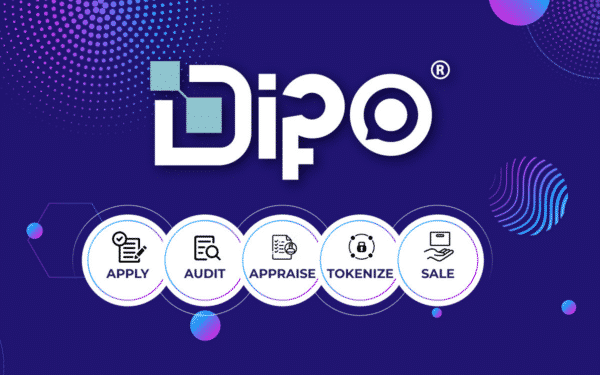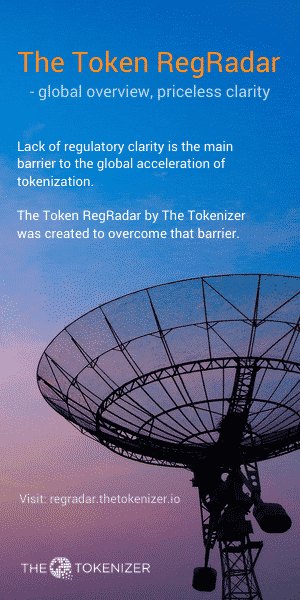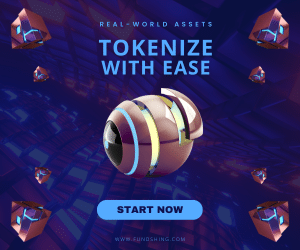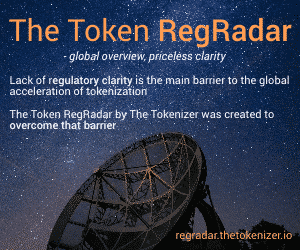Tokenization of assets: A disrupting way to raise capital for SMBs
Never has technology been integrated this much to all fields and aspects of life, and there is no doubt that it is making huge transformations to society. In fact, the economy has always been the fastest to change, and entrepreneurs that stay updated to new techs are those who will win.
How traditional businesses raise fund
Most businesses acquired funds from IPO, loans, or struggle to find support from venture capital funds. These roads are exquisitely built: look smooth and level, but require huge fees and innumerable administrative procedures to get an entrance ticket.
For example, the cost of an IPO is affected by a number of factors, such as the complexity of the IPO structure, company size and offering proceeds, as well as a company’s readiness to operate as a public company. Regardless of the nuances surrounding a private company’s transformation into a public one, all IPOs share a common thread: a substantial investment of time and resources. Enterprises have to be large enough to catch the attention of investors; they need to spend years preparing, applying and waiting for approval; and it will cost no less than $300K to start with. Most businesses, therefore, choose to stay private rather than go public, but that actually halts them from growing bigger.
Another option to enhance the funding for the growth of an enterprise is debt capital. A conventional bank loan is a very common choice of most companies, but the downside is that it can be more challenging to secure. New businesses may struggle to acquire loans because banks typically hesitate to finance a business that is lacking in its track record. If a business is too new and small to qualify for a traditional business loan, an unsecured personal loan may make sense for those who receive an affordable rate. Besides the pros such as maintaining ownership and obtaining tax deductions, debt capital brings along hurdles that may affect the long-term expansion of a company. To secure loans, they must sacrifice the periodic cash flow and use quite much of their assets as collateral.
How the DIPO model will make impacts
DIPO (Digital Initial Private Offering) is a fundraising solution for SMBs and startups by allowing them to issue tokens on the basis of their real assets. It is a proprietary model by LiveTrade LTD, with a registered trademark and awaiting patent from the United States Patent and Trademark Office.

As “Bitcoin” becomes one of the most common words in daily conversation these days, more and more investors are diving into the cryptocurrency market, and more and more changemakers are utilizing this advantage to seek financial support for their solutions. You may have heard of Ether from Ethereum – a coin that was sold to raise money at the price of $0.31 each in 2014, now sits at over $3,128 as of September 27, 2021. You may also hear of Nexo, a project that gives the original instant crypto-backed loans worldwide that successfully launched its security token offering in the first quarter of 2018 with over $52.5M raised. They raised money from individual investors from every corner of the earth, just via the internet. These examples show that you do not need anything much to raise funds, other than a state-of-the-art idea and a pitch deck that sounds. But a regulated business needs more than just money: compliance.
One of the features that make DIPO different from typical capital raising methods in the digital asset sector is the audit process before conducting the offering. By applying blockchain technology, DIPO facilitates businesses and projects to raise capital easily, quickly, and economically, facilitating the focus on their key drivers: product development and repaying to users and investors.
Up to the time of this post, the model has successfully raised a total of approximately $30M for around ten projects, with an all-time-high market capitalization of over $200M. These projects are from a variety of fields: finance and investment, technology, payment, real estate, and even filming & entertainment. With a large user base of over 3 million in its network, LiveTrade has been connecting businesses with investors around the world, proving itself an outstanding financial solution to businesses and brand-new investment products to investors of all ranges.
DIPO employs a much simpler procedure for projects and enterprises to secure the resources: Applying – Auditing (for existing businesses) – Appraisal & Approval – Tokenization – Token Sale. DIPO is a smart substitute with a total cost of fewer than 10 times the typical cost for IPO. The model also helps businesses to maximize their value by maintaining healthy cash flow that is not pre-allocated for serving bank debt. Being an SEC-compliant solution, DIPO thrives to satisfy all the strictest regulations of the jurisdictions and expand the network so that every SMB and investor gets to approach mutual long-term success.
Conclusion
The world is witnessing dramatic changes in the way we live, work and play, all due to the catastrophic consequences of the COVID-19 pandemic, but at the same time, ones that survive the hardest times will seize all the forces and resources to go forward and bloom. DIPO may be the way out of this maze, offering a bright future to businesses with good products and services but are suffering to carry on.
Photo by Say Cheeze Studios on Unsplash
Read More: HIVE Blockchain Technologies Announces Strategic Investment in NFT Business
CadaLabs: First Decentralized NFT Marketplace on the Cardano Ecosystem
You Might also Like
























